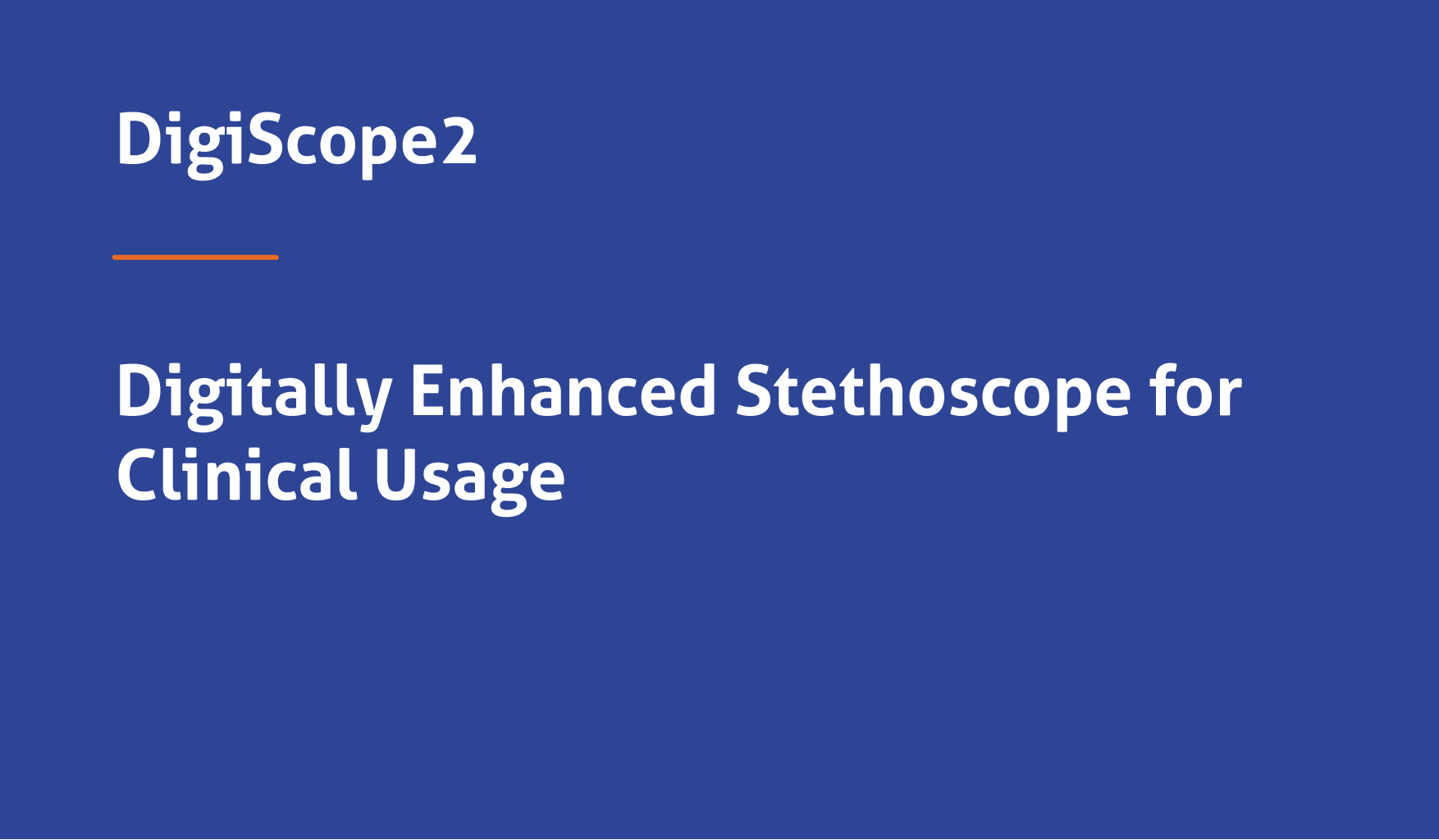Project Description
DigiScope2
DigiScope2 – Stethoscope for Clinical Use has as main objective the creation of a prototype of a decision support system for auscultation, through the adaptation and evolution of the current cardiac sound processing algorithms, incorporating them in a machine learning structure that combines these results with additional patient data, integrating all of this into an existing non-intrusive auscultation recording system.
Abstract
Auscultation is one of the fundamental steps of a patient’s physical examination and the first line of screening for cardiovascular disease. Through clinical signs extracted from auscultation, a health professional decides whether additional tests are necessary, typically an echocardiogram, which, although more accurate, is a more expensive test that requires specific training for its application.
The cost-effectiveness of auscultation contrasts with studies that show that only 20% of interns are able to do it with quality. The DigiScope initiative is a 10-year research line that involves several partners and explores the possibilities offered by combining electronic stethoscopes with the processing power of today’s computers to create a non-intrusive decision support system, thus restoring the importance and the impact of auscultation on primary health.
The main objective of the DigiScope2 project is to create a prototype of a decision support system for auscultation, through the adaptation and evolution of the current cardiac sound processing algorithms, incorporating them in a machine learning structure that combines these results with additional patient data, integrating all of this into an existing non-intrusive auscultation recording system.
Achieving this goal requires a convincing strategy and an experienced team. DigiScope2 is based on the success of past projects (DigiScope, FutureHealth, HeartSafe, SmartHeart, NanoSTIMA), which during the last decade have produced a vast annotated database of cardiac sounds and associated clinical information, new knowledge and publications on cardiac signal processing, a solid technology for collecting auscultation signals, and a collaboration network with hospitals and health centers.
Two basic research tasks for this project will take advantage of this knowledge and resources already available to investigate new cardiac sound processing algorithms, exploring the recent and promising advances in independent Subspace Analysis, and create new machine learning structures based on Bayesian Networks. These results will be integrated into an industrial research task, responsible for the evolution of the current harvesting technology to what we call DigiScope, a digital stethoscope for clinical use.
The project’s experienced team combines not only scientific expertise in signal processing (Miguel Coimbra), machine learning (Pedro Rodrigues), and software engineering (Ricardo Correia), but also the perspectives of academia (IT, FMUP) and industry (IS4H ), paving the way for both scientific excellence and credible technology transfer processes.
Funding Institution
FCT e POCI – Programa Operacional Competitividade e Internacionalização
Global Budget
239,427.14 €
CINTESIS Budget
59,086.76 €
Referência
POCI-01-0145-FEDER-029200
Duration
01/07/2018 to 30/06/2021 ( 36 months)
CINTESIS Researchers Involved
Pedro Rodrigues, Ricardo Correia, Bruno Oliveira
Partners
IT (líder) e IS4H

